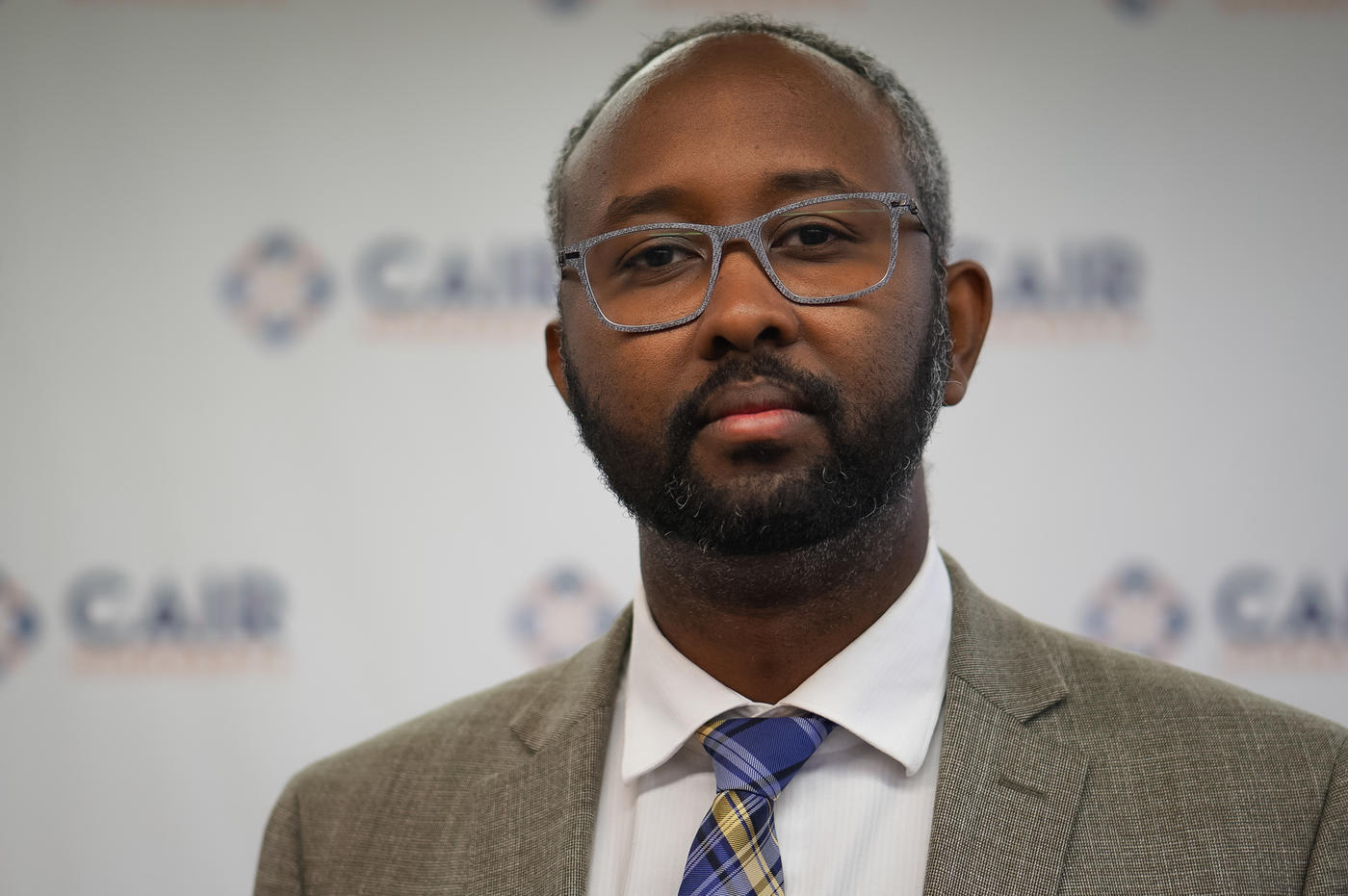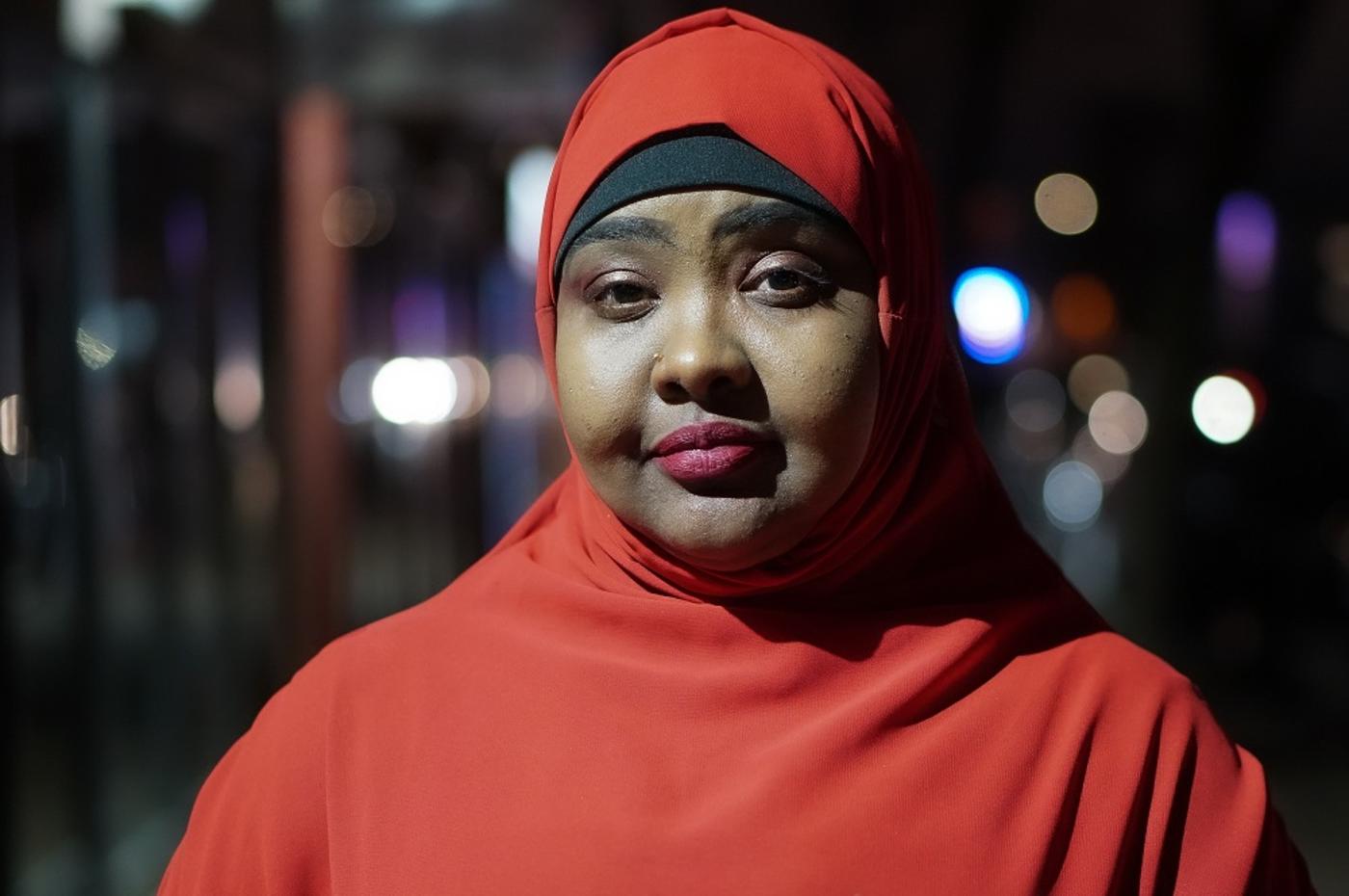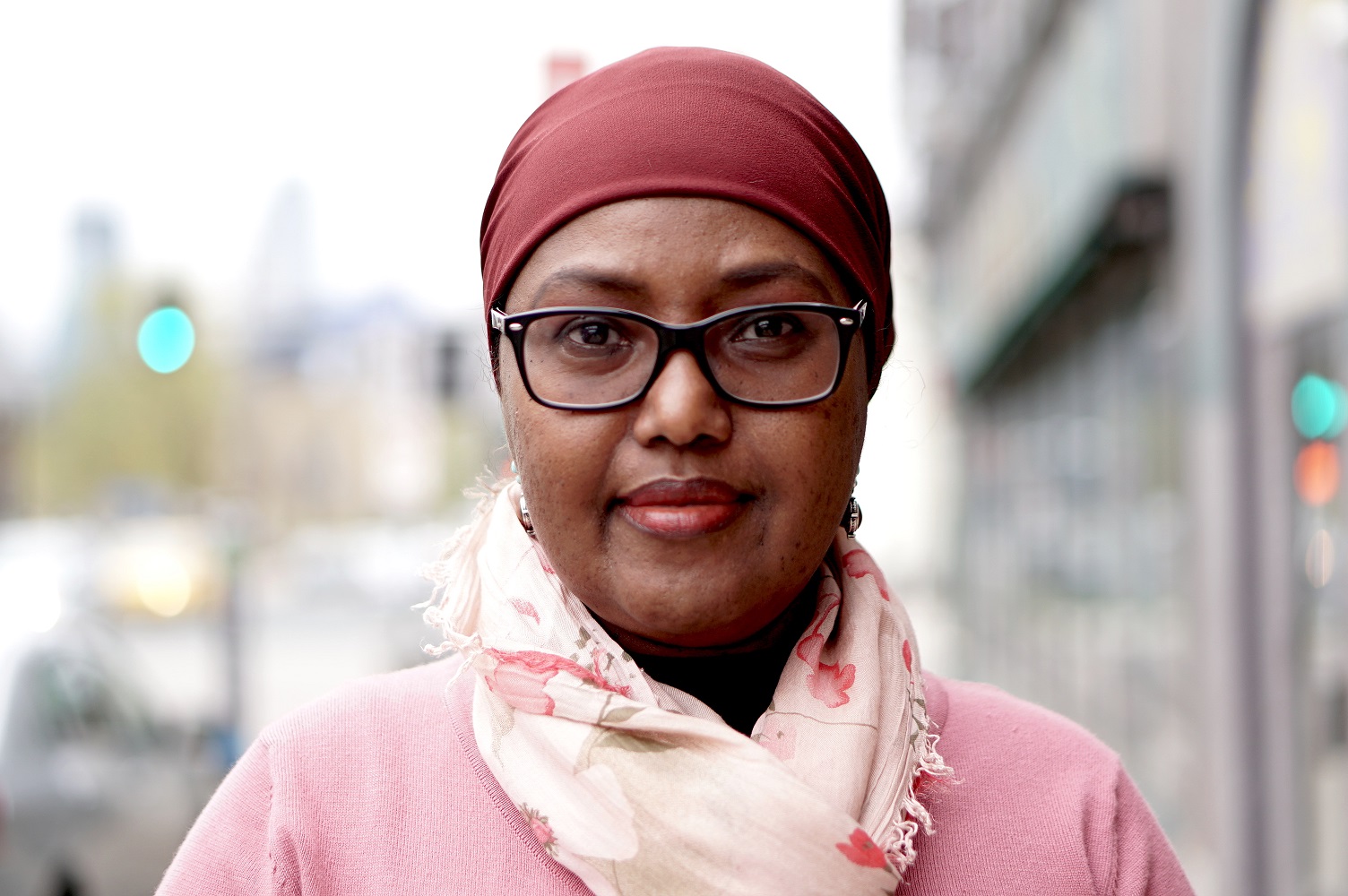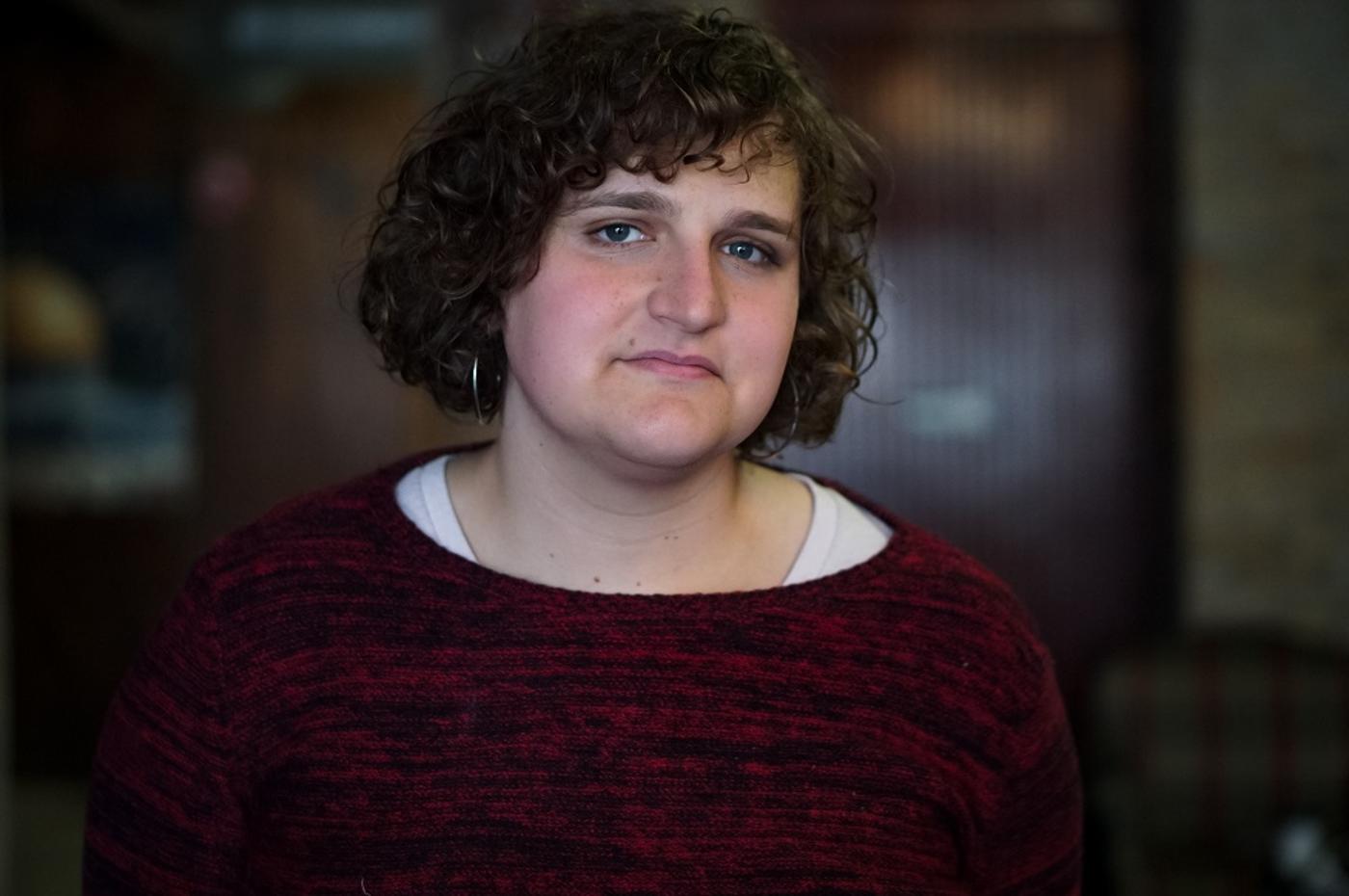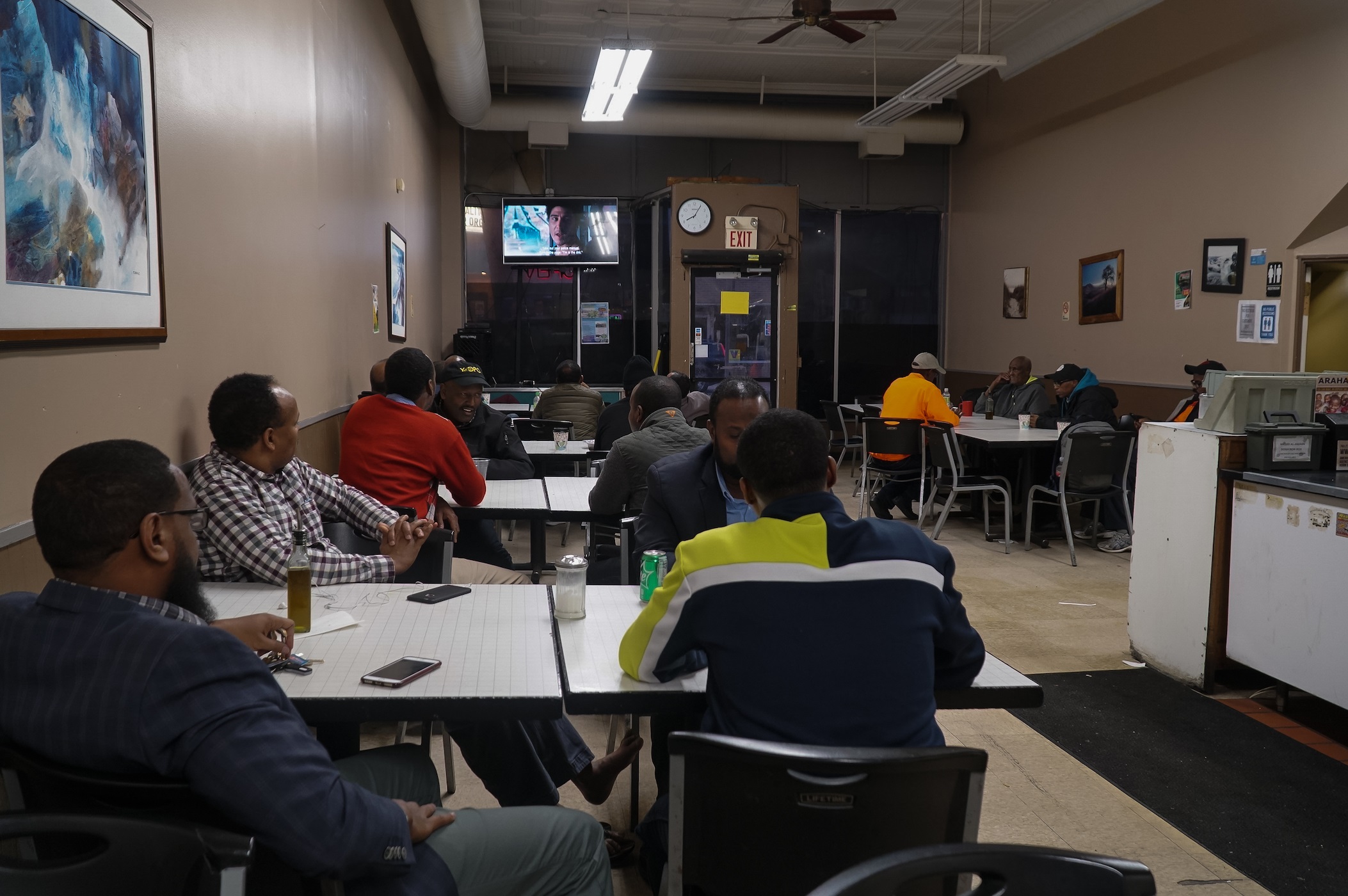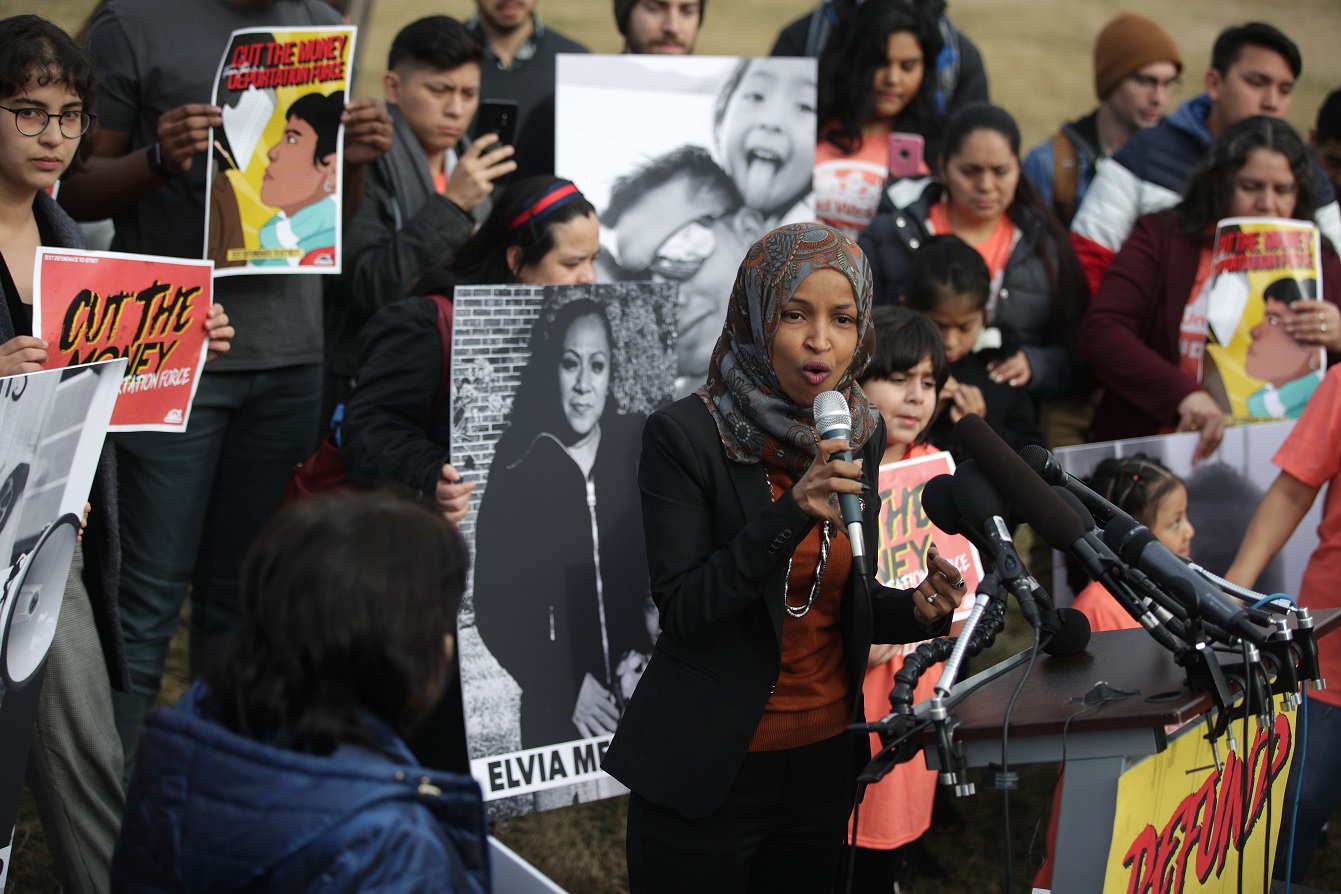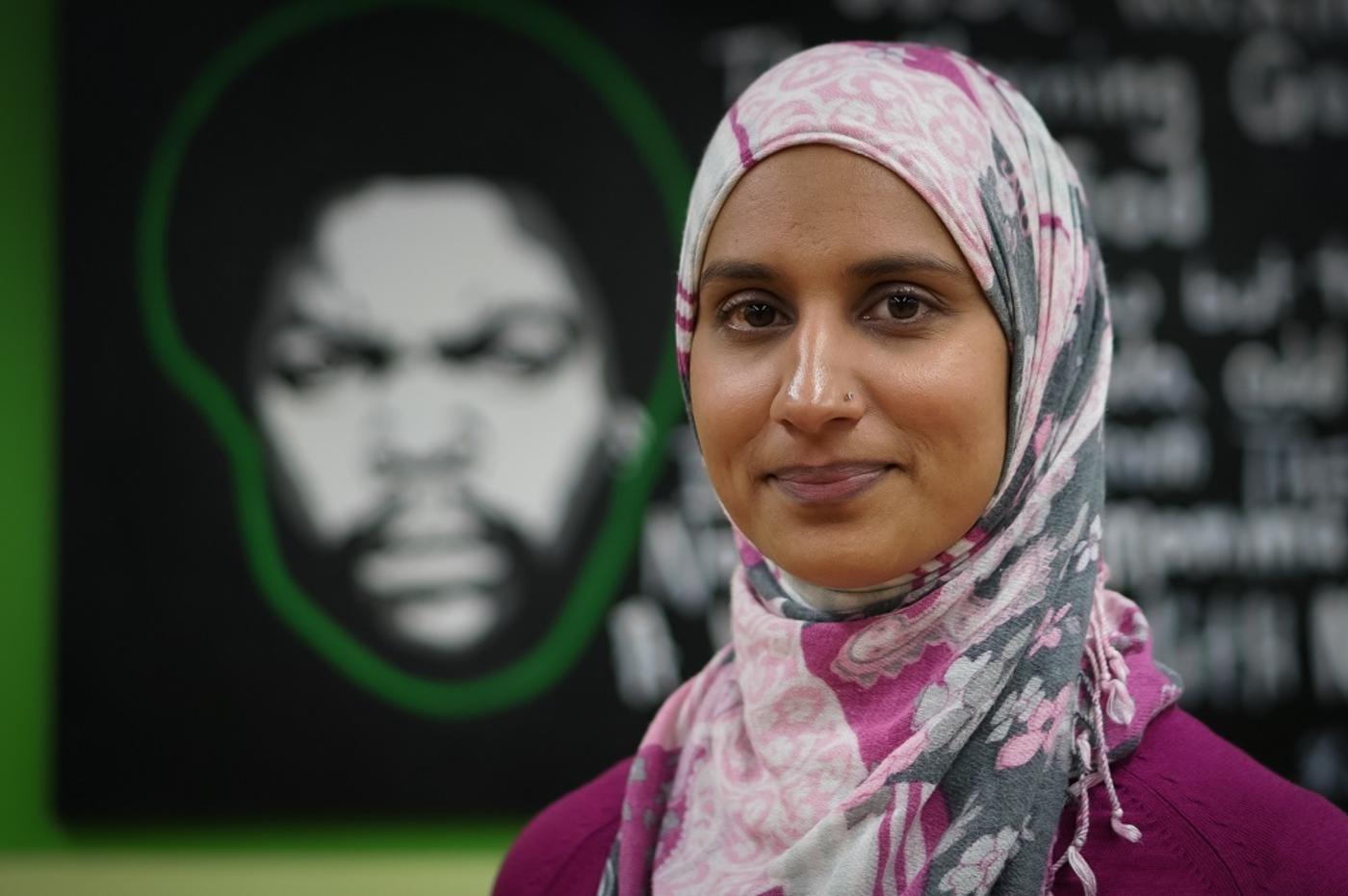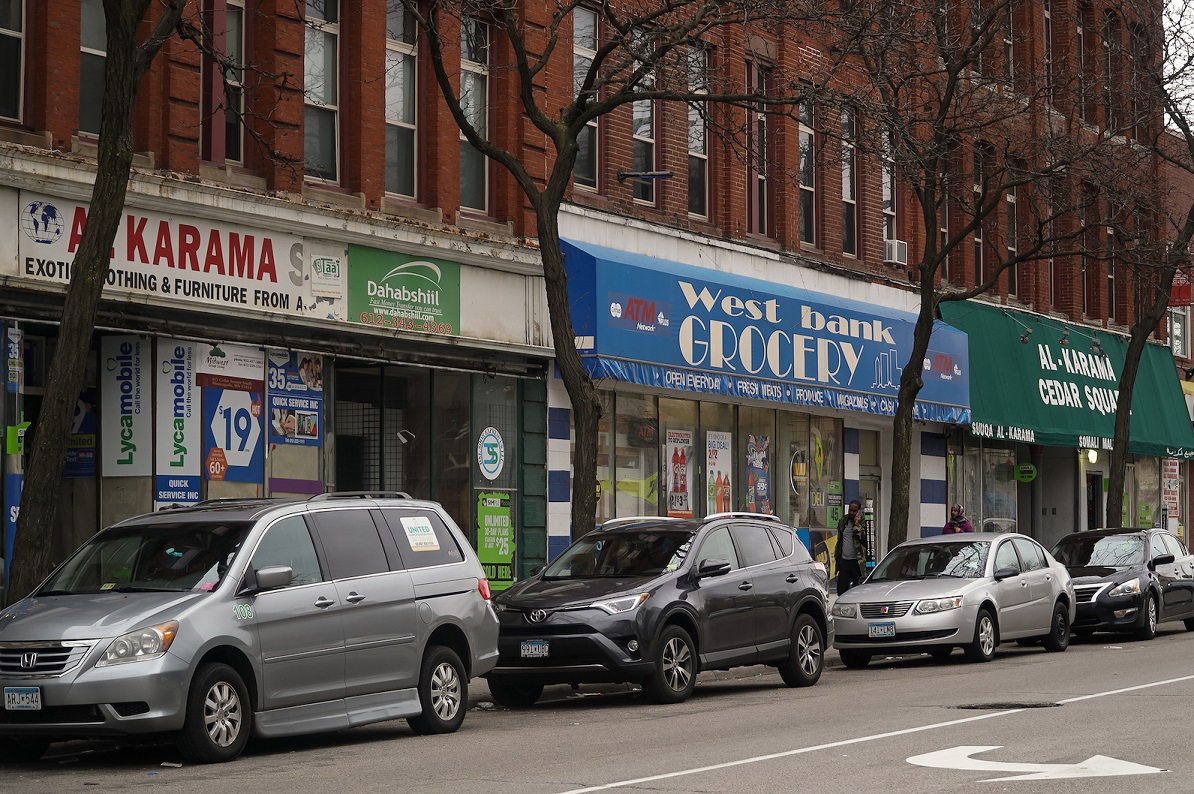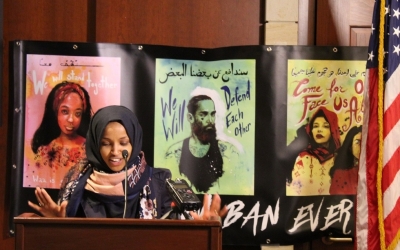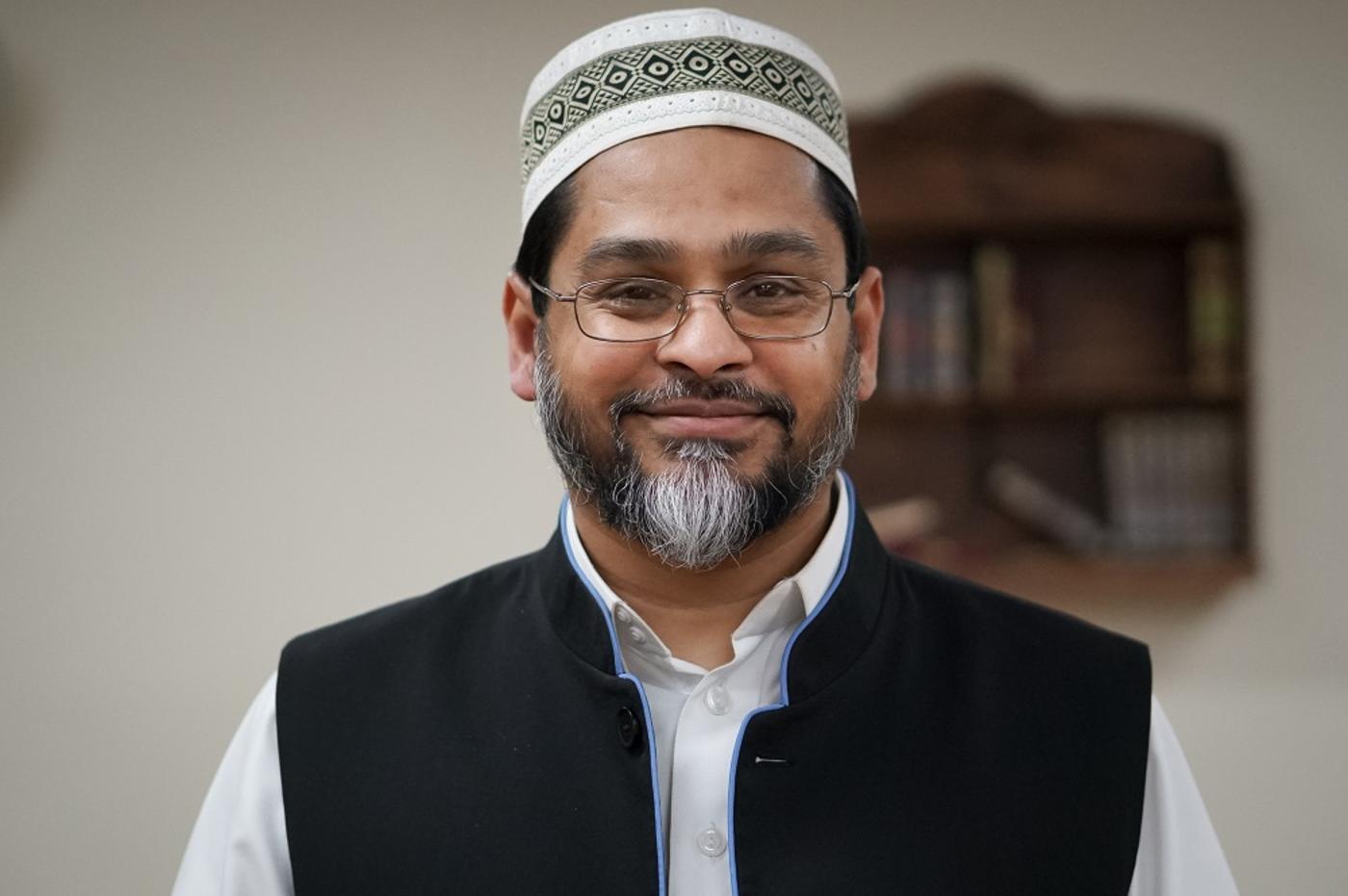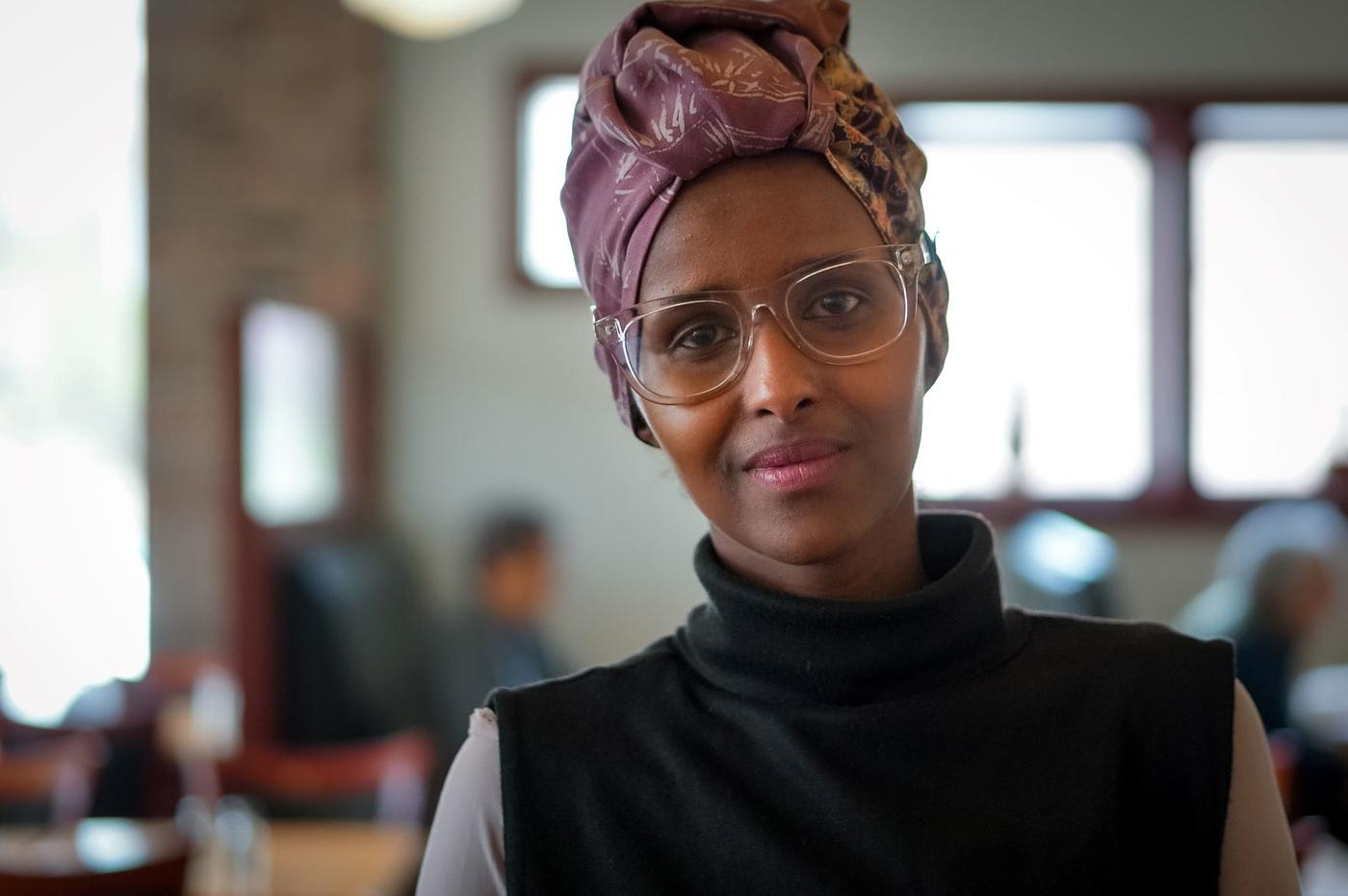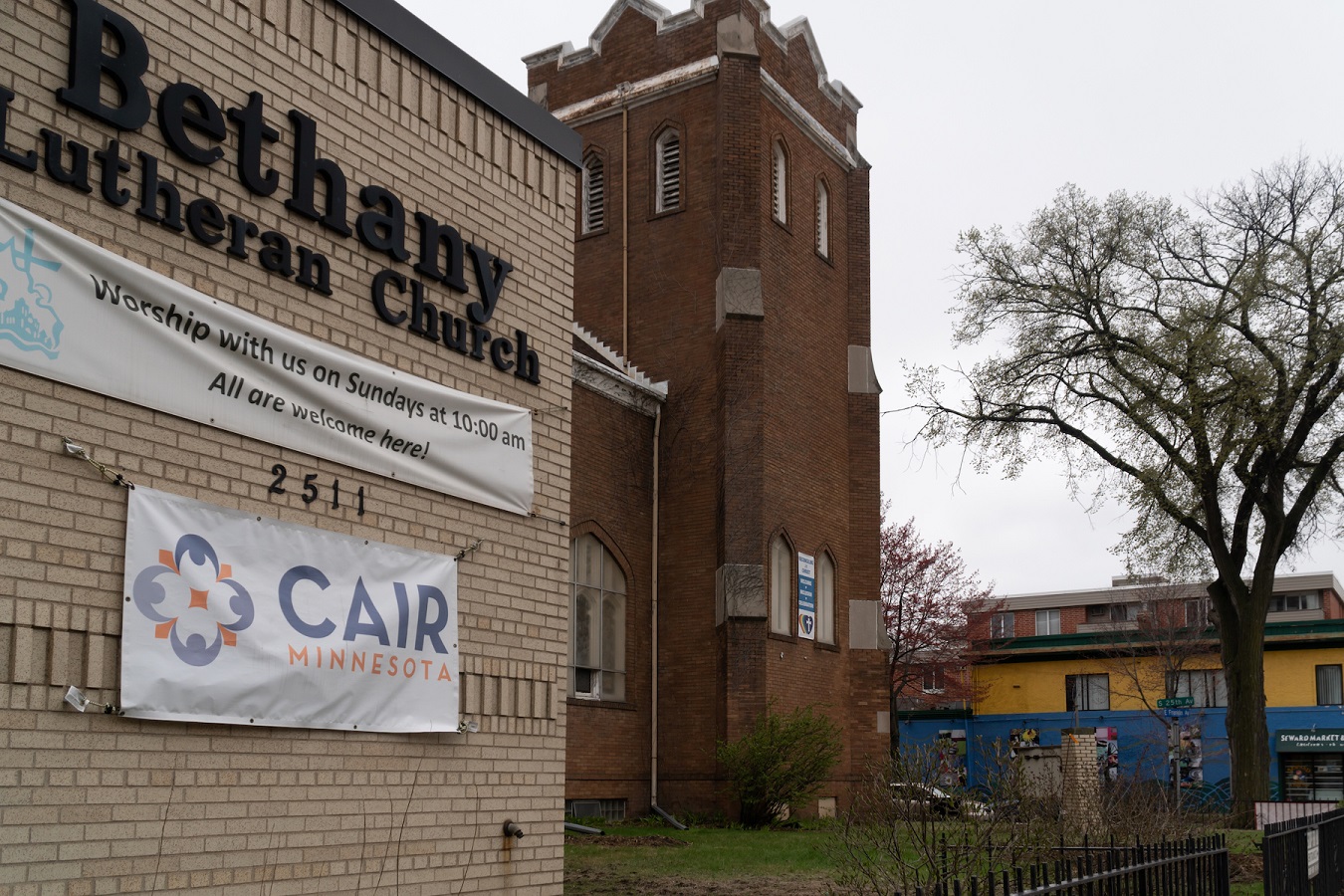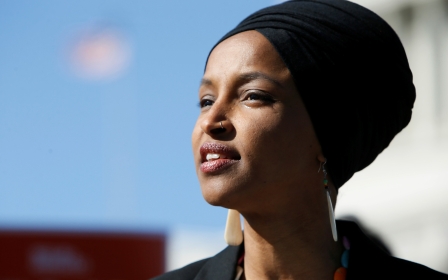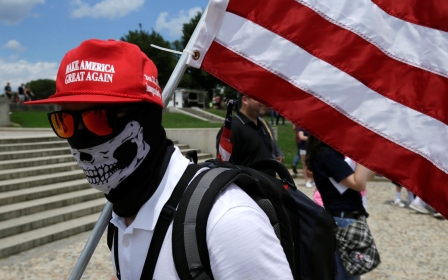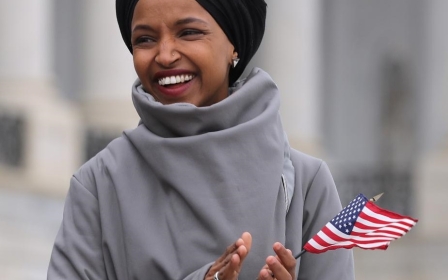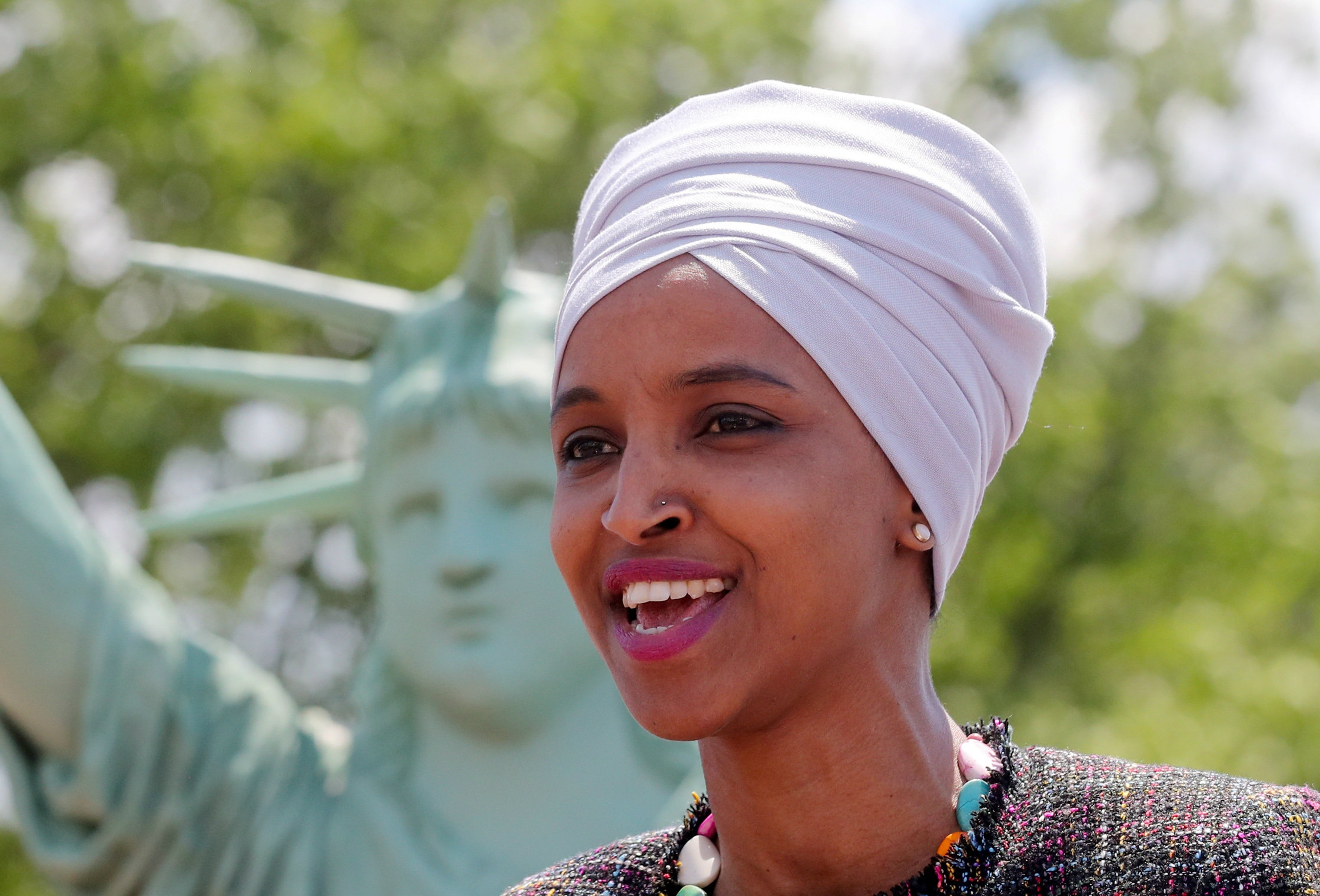
Somali. Black. Muslim. Woman. Refugee. American: The making of Ilhan Omar
In a Turkish grill house in the Cedar-Riverside neighbourhood of Minneapolis, the tables have turned. Habon Abdulle, the woman I have spent days pursuing for an interview, wants to know what I think about US Congresswoman Ilhan Omar.
The question catches me off guard. But I should have anticipated it.
Abdulle knows that a few days earlier I’d had a chance encounter with Omar at a Somali shopping mall in southern Minneapolis. I had barely walked into the mall when I had seen a small crowd taking selfies with Omar. I waited for one, too.
Omar, as the first Somali-American to make it to the Minnesota state legislature and then to Congress, is part of a new cohort of path-breaking politicians daring to challenge not only US President Donald Trump but the broader American political establishment.
But Omar is more than just a congresswoman with fight. She is a refugee from a country that is now part of the president's Muslim ban; she is black, visibly Muslim; a walking antithesis to Trump's purview of America.
New MEE newsletter: Jerusalem Dispatch
Sign up to get the latest insights and analysis on Israel-Palestine, alongside Turkey Unpacked and other MEE newsletters
Within months, she has shaken the halls of Congress. As an "other" she is now the embodiment of what is fast becoming a fight for America's soul.
I had gone to Minneapolis to find out who Omar is and what she means to the people who know her. What was it in her journey from war-torn Somalia and a sweltering refugee camp on the Kenyan coast to a second childhood and adolescence in Minnesota that was key to unlocking who she is and where she may be headed? These were some of the questions still swirling inside my head.
“So, what are your first impressions?” Abdulle persists, to my dismay. I am here to ask the questions, after all.
But when it comes to understanding Omar’s political journey, all roads lead to Abdulle. As a mentor and a confidante, she is one of the main reasons Omar ran for political office. I feel compelled to sound out my thoughts. And wait.
Abdulle gently nods and smiles. “Yes, that’s Ilhan.”
Coming to America
Ilhan Omar was born in Somalia in 1982. She lost her mother when she was two-years-old, leaving her father and grandfather to raise her along with six other siblings.
By the end of the 1980s, Somalia was in the grip of a rapacious civil war, and Omar’s family fled the country, ending up in the Utange refugee camp, close to the Kenyan coastal town of Mombasa in 1991. For four years, the family toiled in Utange, where conditions were rough and facilities rudimentary.
In 1995, the Omar family were among the fortunate few to secure sponsorship for resettlement in the United States, which was deeply tied up in the civil war in Somalia.
The family touched down in Virginia and finally made their way to Minneapolis, in the midwestern state of Minnesota, where around 50,000 Somalis now live. Omar swallowed the brochures about the land of the free and remembers arriving with the perception she would be living in a just and equal society. She discovered America was a little more complex than anticipated.
"When I arrived, I saw these American ideals, but there was still work needed to be done in full realisation of it,” she tells me over the phone.
Under the tutelage of her father and grandfather, Omar was raised to believe that if something was not working as it was meant to, one had to take corrective action, and that she had a responsibility to do so. Omar's father, Nur Omar Mohamed, worked initially as a taxi driver before joining the US Postal Service.
"My grandfather used to say that everything we get to enjoy as people of colour came about because people were willing to fight for progress," Omar says. "If we want to see further progress for us, then we have to get involved in creating that."
When she was 14 she took her grandfather to vote, in what she describes as her entry into civic life. In high school, she helped form the "unity in diversity programme" to try and address the racial, cultural and ethnic challenges the school faced.
"What has always driven my activism has always been in seeing myself as part of the solution in creating that change," Omar says.
"I was never the type of person who threw your hands up and believed that nothing could be changed."
Jaylani Hussein, who attended a few classes with Omar as they both pursued degrees in political science at the North Dakota State University, describes her as being “a very smart student” who “made a lot of sacrifices".
“She was at the top of the class, we both were, and I can say that we were not the quiet ones,” says Hussein, who is now the executive director of the Minnesota chapter of the Council on American-Islamic Relations (CAIR-MN).
“She was very engaged in student life to the extent she could be involved, given that she was a non-traditional student who had children and had responsibilities.”
Omar finished a political science degree and returned to Minneapolis, student debt in tow, and became involved in civic life in the city. In 2006 she joined the University of Minnesota as a nutrition educator and also became increasingly involved in the political life of the city.
Hussein says that what struck him about Omar, even from those early days, was her determination to give back to her community, be it in Minneapolis or back in Somalia.
He points out that in 2011, during the height of the drought and famine in the Horn of Africa, Omar had travelled to deliver aid to refugees in Dadaab, the place she and her family had left in the 1990s.
“Her entire story has been a fight. Nothing was ever handed to Ilhan," Hussein said.
'A hard worker'
At first, Saciido Shaie is reluctant to talk about Omar. But once the 35-year-old starts, it's not hard to understand her trepidation. She has a lot to say.
“I remember she used to teach Somali women and elders about diet, nutrition and healthy eating,” Shaie, who is now the director of the Ummah Project in Minneapolis, says.
“Like her, I have two daughters and one boy. So we used to meet at community events."
Shaie, a longtime community organiser, spins her phone on a low wooden table top in a dimly lit Somali tea-shop in the Seward neighbourhood of Minneapolis.
“We didn’t think Ilhan would become that Ilhan, you know, the one who would end up in Congress,” Shaie says, with the type of giggle you might associate with a dirty secret.
“I knew she was off to somewhere. You could see from the way she spoke to people. And when you talk to her, you could tell that she was looking way ahead. I just didn’t think it would be so quick,” she continues, again with a giggle.
Shaie puts down her phone finally and picks up the sugar dispenser lying on the table-top.
“So after she made it and we spoke, Ilhan said to me: 'Everywhere I went, I was leaving a mark. I left a stone here, here and here and here. Everywhere, I left something,'” Shaie says, using the sugar dispenser as a prop to make her point. She then looks me in the eye: “Do you understand what I am saying?”
And just to make sure I do, she clarifies. That Omar outsmarted and overtook everyone, was no accident.
Habon Abdulle moved to Minnesota in the early 2000s. She found a Somali community trying to take charge of their lives despite their economic difficulties, with some even showing aspiration to run for office.
But she also noticed that whereas many of the women were involved in organising and building community projects, it was the men who were being primed for political careers.
For instance, when Hussein Samatar was elected to the Minneapolis Board of Education in 2010, he was the first Somali-American to make it to office. Then there was Abdi Warsame, who was running for Minneapolis City Council. He was elected in 2013.
Abdulle wanted to change the gender dynamics. In 2012, she formed a loose grouping of women with the intention to workshop and elevate women into public office.
Omar, as a longtime organiser and community activist, as well as the campaign manager for Kari Dziedzic’s reelection campaign for the Minnesota State Senate in 2012 and then Andrew Johnson’s run for City Council in 2013, was part of this cohort.
Abdulle recognised a hunger in Omar for political leadership and was adamant she run for office.
“She knew this city. She knew who needed protection, who needed help and support,” says Abdulle, who is now executive director of Women Organizing Women (WOW).
“I knew from her ideas that she would be perfect to run for office.
“She would always talk about injustice, and the need to end it. Though Ilhan believes in community organising, we both agreed that electoral politics was the way to bring about those changes.”
The push from Abdulle was met with enthusiasm from Omar’s other friends, like David Gilbert-Pederson, a fellow political campaigner based in Minneapolis who, in 2008 aged 17, had been the youngest delegate at the Democratic National Convention.
As community organisers, Gilbert-Pederson and Omar would spend hours talking over dinner about the kind of leaders they needed in local politics.
“We agreed that we want leaders to be organisers, to be accountable to the base, we want them to be representative of who our communities are, we want them to view elections as means towards making a better world, and not as an end,” Gilbert-Pederson tells me over the phone.
“We recognised that we lived in a unique district, 60B, with the largest student population, a large Muslim and East African community, a lot of long-term white residents who are liberal.
“I felt Ilhan viewed elections as a way to move visionary policies forward and I told her she should consider running and in a way that is different to others."
Ilhan was hesitant. After a series of conversations, she finally came round. She would run for the 60B seat in the Minnesota state legislature. The duo quickly assembled a team, with Gilbert-Pederson becoming her campaign chair.
When I ask Omar if she saw any contradiction between being a grassroots activist and running for office, she downplays her hesitancy and says she believed that “we need to be on the streets and in rooms where decisions are being made..."
But Omar also knew she had her work cut out.
To win the seat, she would have to face off against fellow Democrat Mohamud Noor, a Somali man whom Omar had previously helped campaign for, and the incumbent Phyllis Kahn, who had been 60B’s representative since 1972 in the primaries.
In this part of Minneapolis, winning the Democratic primaries effectively meant winning the seat.
But to win the primary, not only did Omar have to confront Kahn’s advantage of incumbency with years of experience and access to resources and networks, she had to rise above the patriarchy of the East African community - of Somalis and Ethiopians - who already favoured Noor.
Part of the community’s hesitation was the fact that the Somali elders didn’t know her as a politician, the other was the de facto cultural expectation that men should take the lead.
'It felt like a long shot at the beginning. But I saw how quickly she interested people. And students were excited that she showed interest in them'
-Noa Shavit-Lonstein, environmental activist
Abdulle, Omar’s mentor, says part and parcel of their election campaign was a parallel effort to shift mindsets in the Somali community.
“We had to reach out to the community and explain that women were not just worthy of helping men on the sidelines and in the background but they could lead, too,” Abdulle says.
Omar was already breaking barriers. Her husband Ahmed took time off work to look after their three children so she could focus on the campaign. Omar’s father reached out to the community elders for support, too.
It didn’t work immediately. That she initially only received partial support from her own community, and managed instead to bring together a diverse coalition of white progressives, students and the LGBTQ community to rally for her, is a fact often ignored in the story of her rise. To many in Minneapolis, her ability to unify an assortment of progressive interests is the story of her success.
For months prior to announcing her candidacy, Omar and her team began talking to people in the district and building authentic relations with them.
“We didn’t go looking around for big endorsements," says Gilbert-Pederson. "We went to the anti-war movement, the environmental justice movements, and the neighbourhood groups, and we asked them: 'Ilhan is thinking of running. What is it that you want from your representative?'”
Gilbert-Pederson’s narration is underscored by the experience of Sonia Neculescu, the co-founder and political action director of Women for Political Change, an organisation that invests in women's leadership.
Neculescu fondly remembers how Omar came to one of their first meetings when they were barely a student group at the University of Minnesota.
“It was 2015 and we had just started and she reached out to us. We were shocked,” Neculescu said.
“She was really the first person who engaged with us. She listened and she asked us what we care about. It was empowering for young people who often feel kept out of the political process.”
Noa Shavit-Lonstein, an environmental activist who joined Omar’s campaign as a student organiser and campaigner, said she had done so because she saw in Omar a genuine attempt to connect to the issues young people were concerned about.
“People would talk about student debt and Ilhan would say: 'Me too'. They would talk about crime and she would talk about how her house was broken into. And as someone who is from East Africa, she could also understand the impacts of climate change.
“It felt like a long shot at the beginning. But I saw how quickly she interested people. And students were excited that she showed interest in them,” Shavit-Lonstein says, recalling that it was also the time when interest in Bernie Sanders was skyrocketing, adding to the allure of change that someone like Omar offered.
Investment in young people and the marginalised is a recurring theme when it comes to descriptions of Omar. She didn’t patronise youth with menial tasks. She respected their input, took them on board, gave them positions of leadership.
Neculescu says she ended up interning for Omar and then helped out with managing her campaign at one point.
“She had 22- and 23-year-olds knocking on doors, speaking their truth, refusing to be politically correct,” Shaie from the Ummah Project says. “It was hard work, but fun, and it was energetic for the people who want to fix the system.”
Gilbert-Pederson, Omar’s campaign chair, says the commitment to listening and engaging was actually a primary facet of her campaign.
Kahn, the veteran representative, was predictably less enthused. "Ilhan is younger than me. She is prettier than me. She appears nicer than me," she said of her younger rival during the campaign.
"She agrees with anything that anyone says to her. So, it was tough competition."
'The perfect recipe'
In August 2016, Omar unseated Kahn in the Democratic primaries. Three months later, she defeated the Republican candidate in becoming the first Somali-American to become a state legislator.
As soon as she entered the state house, the attacks began.
It’s hard to say what that perfect recipe was for Ilhan, but part of it is that she works incredibly hard, building relationships, which comes from the fact she is an organiser
- Ken Martin, Chair of the DFL
First, she was accused of marrying her own brother in order to facilitate his US citizenship. Later, she was accused of financial irregularities in the state legislature. Omar denied both allegations.
Minnesota’s attorney-general said in a statement that there was no truth to the marriage allegations and that it had no intention of pursuing the matter. The allegations of financial irregularities were not pursued either, but it was a sign of the smears to come.
In response, Omar said: “We recognise how these folks are deeply invested in stopping a progressive, black, Muslim, hijab-wearing, immigrant woman.
“We know these people are part of systems that have historically been disturbingly motivated to silence, discredit and dehumanise influencers who threaten the establishment.”
In no time, Omar had become a household name in Minneapolis.
“Here in Minnesota, there wasn’t a press conference about any political issue or political bill in Minnesota that was substantial without Ilhan being at the forefront,” Hussein from CAIR says.
In 2018, Congressman Keith Ellison, of Minnesota's 5th congressional district, announced his intention to step down and run to be the state's attorney general. It meant that a vacancy would be opened up in Congress. Omar jumped into the race.
Democrats have held the 5th district, made up of around 700,000 people, without interruption since 1963. Winning the primaries would almost guarantee winning the election.
The 5th district is famously diverse: it is highly educated, with around 50 percent of the adult population said to have a university degree. It is home to tremendous wealth and yet also the highest rate of poverty in Minnesota. Crucially, around 35 percent of voters were aged between 22 and 36.
The Minnesota Democratic-Farmer-Labor Party (DFL), as the Democratic party is referred to in the state, endorsed Omar.
Ellison, no stranger to political firsts himself, being the first Muslim to have been voted into Congress back in 2007, and now the state attorney-general, endorsed her as well.
“She had a certain determination and sincerity that I thought was important. She is the kind of person who will stand up for what she believes in even if there is a cost to pay,” Ellison tells me over the phone.
With Omar vacating her seat in the state legislature to run for Congress, Mohamud Noor would now seek to become her successor.
'Nobody who knows Ilhan thinks she is antisemitic. Everybody who knows her knows it’s about propping up her values about human rights and dignity'
- David Gilbert-Pederson, Ilhan Omar's campaign chair
Omar’s election campaign for Congress was on a progressive ticket for the ages. Medicare for all, criminal justice reform, immigrant justice, environmental justice. It injected fight, resilience and hope into the young and liberal white vote.
The audacity of Omar’s personal story as a Somali refugee climbing the halls of public office and the progressive agenda she espoused made her the very embodiment of a counter-narrative to Donald Trump.
Ken Martin, chair of the DFL, says a culmination of factors conspired in her favour. “It’s hard to say what that perfect recipe was for Ilhan, but part of it is that she works incredibly hard, building relationships, which comes from the fact she is an organiser.”
She brought together people who had been on the sidelines. She foregrounded the forgotten. Shaie, from the Ummah Project, says Omar employed a set of tactics that surprised them all.
“You are black? Gay and lesbian? Are you Jewish? You're Chinese? Somali or Oromo? Come. You are all my people, she told them,” Shaie says, her eyes lighting up. “We all have the same needs. We are the minorities.”
“They don’t like me, just like they don’t like you. I am black, I’m Muslim, I’m a woman. I am you. You want your voice to be heard. Trust me. This was her message.”
“All of the organisations who wanted to work with these minorities, and wanted to look good, they also had to endorse her. Ilhan had all of them behind her,” Shaie says with animation.
Imam Asad Zaman, the executive director of the Muslim American Society of Minnesota (MASMN), says the Muslim community were galvanised to support Omar in the primaries. Some 28 imams and prominent Muslims leaders endorsed her. Once she had the Somali imams, the Somali community were also on board.
Omar won the primary in August 2018 and the election in November.
In so doing, she became the first Somali-American and one of two Muslim women ever to reach Congress, and the first in hijab.
Buying sweets
It is in corridors of the Karmel mall in South Minneapolis that I meet Ilhan Omar, decked in a black leather jacket and a light brown headscarf, tied as a turban.
An aroma of sambusas and Somali cardamom-cinnamon-ginger-clove tea lingers. A dizzying collection of stalls selling colourful long-dresses, abayas and scarves surround us, punctuated only by travel agencies promising a safe and spiritual pilgrimage to Saudi Arabia.
“I am buying sweets,” she tells me, the calmness on her face in acute contrast to the hysteria surrounding her name at any given moment. In the past two months, Omar has been accused of antisemitism, cosying up to Islamists, trivialising the 9/11 attacks and being anti-American. The range of slurs have also culminated in a series of death threats.
But here she is buying sweets, smiling with her constituency and taking selfies. She promises me an interview. “It’s been a month of trying with your office,” I explain.
She tells me to try again before she excuses herself and is whisked away by members of her local staff to her vehicle.
Given the intense gaze of the media, I have little expectation of an interview materialising. In the days that follow, her supporters and friends make their scepticism of the media and parachute reporters clear.
The perception here is that since she began running for state representative in Minneapolis, Omar has taken a beating in the local and national press. Since she entered Congress, the attacks have become ludicrous, even dangerous; her words have been purposely distorted, her identity dragged.
“I could have told her of what was going to happen, in fact, maybe I did,” Ellison, Omar’s predecessor in the 5th district, tells me.
The Somali community, too, has taken a kicking. Not only are Somalis seen with suspicion when it comes to criminality, terrorism and immigration fraud by the media and the state, their families continue to face repercussions of the ongoing Muslim ban.
Even if Omar is not merely “the Somali representative”, the attacks on Omar are a manifestation of the systematic exclusion the community has become accustomed to. They feel vulnerable and under attack.
A struggle from within
But four days later, I am on the phone with her, unable to get through even half of the dozen questions I have for her before she has to run off to another meeting.
Omar speaks slowly and enunciates her words. Her answers are long, but thoughtful. It makes me wonder if Twitter’s 280 character limit is a mere recipe for mischief.
We talk about her family, commuting and living a life split between Washington and Minneapolis, about grassroots activism versus electoral politics and if she wants to finally thank Donald Trump for bringing American racism and bigotry out into the open for all to see.
“I don’t know if I would say thanks,” she says with a stunted laugh.
“We recognise that he has unearthed a lot of the ills that we have decided to not speak in our society, in the ugliest way. And there are a lot of people who want to whitewash [that] and I think we have to be very consistent in calling them out, regardless of whether it makes people uncomfortable or not.
“This discomfort I believe will get us to the type of changes we want to see.”
I ask her about her place in American politics and if she sees herself, Alexandria Ocasio-Cortez and Rashida Tlaib - the provocateur progressives in Congress - as a glitch in the matrix or a sign of US politics substantially changing.
“I think it can change from within. I was raised to believe that this was the one thing that was unique about this country: that people have the opportunity to fight and create the changes they want to see.”
“We [the cohort] are just part of a re-imagination - in the understanding - that this system really was supposed to be represented by people from every walk of life. And when you negate from that, you have these types of destructive and disastrous policies that have only benefited a few and left many out.
"I think that has given birth to people who want to put people in the centre of politics.”
But given the vicious smear campaign from the right wing, the stuttered and often hesitant support from centrists from within her own party, does she believe that progress is possible?
On this, Omar has no misgivings in her belief that “othering” and pushback towards inclusion has always been part of the fabric of the United States.
“Even going back to the reconstruction era after the Civil War, you will see that any time new voices were included, there was extreme pushback.
“But the people themselves are pretty excited to see the new transformations that we are creating. Those in the halls of power are not too excited. But we believe that we will persist.”
This persistence will allow more people from the margins to believe in the possibilities, she adds.
That Omar is eloquent and persuasive is a refrain I hear consistently in Minneapolis. That she is known to work hard and serve is also a common description. Andrew Johnson from the Minneapolis City Council, whom she campaigned for and then worked for as a senior policy aide, went so far as to describe her as “an exceptional human being".
But the sustainability of such a movement was certainly up for debate.
Not if you were a young person person of colour, or from a minority group in the city, it turns out.
Shavit-Lonstein, the environmental activist, says supporting Omar was always about injecting fresh blood into electoral politics and upending a politics of pragmatism.
Omar’s energy has already been inspiring other Muslim women and other women of colour in the state to join politics or seek public office in one form or another.
Nausheena Hussain, the director of Reviving Sisterhood, a Minneapolis-based organisation that centres the voices and lived experiences of Muslim women towards impacting social change, says Omar has become a catalyst for other women to participate in civic life.
“Younger women see her a role model and a ‘shero’. They see her as someone who not only speaks truth to power, but is making a change.
“Topics that people didn’t want to touch or say out loud, she is saying them on Twitter,” Hussain says.
Ahead of the 2020 elections, Hussain says there is a lot of energy among young Muslim women in Minnesota to take hold of their narrative.
Likewise, Shaie, of the Ummah Project, says that Omar has paved the way for others.
“Because of Ilhan, people respect Muslim women. People think we are abused and voiceless. Ilhan speaks straight; take me or leave it. She is wearing hijab. She bust that law. When she is on CNN, I am there, too,” Shaie says.
'What if a crazy comes here?'
In a Somali tea shop in Cedar Riverside, my attention is split between NBA on one television screen and Kevin Costner’s Waterworld on another, when I am approached by a man in his 40s. He noticed me taking a few photos and wanted to know if I was working on a student project at the nearby university.
'Because of Ilhan, people respect Muslim women... When she is on CNN, I am there, too'
- Saciido Shaie, director, the Ummah Project
I thank him for the compliment but clarify that I am in town to find out more about Omar. I request an interview but he, too, wants to know what I think of her before moving on. I sound out my thoughts. He looks at me and narrows his eyes.
“I don’t support her," he says after a long pause.
"I think she is drawing too much attention to herself,” he continues before requesting anonymity.
"You can just call me Abdi,” he says, referring to the John Smith of Somali names. We both laugh but I decide I’ll choose something less ridiculous. I call him Khalid.
“Her fights with Trump are drawing too much focus on us here, and what if a crazy comes here and shoots us up?” Khalid says. “She should just focus on lying low, getting into her job.”
Khalid also questions her support for LGBTQ rights. “How can you support gay people and then claim to be a defender of Muslims?” he says incredulously.
In the middle of our conversation, the men in the tea-shop rise and Khalid invites me to pray Maghrib with the brothers in a mosque across the street.
Outside the neon lights of Cedar Cultural Center illuminate in the soft light of sunset. The towering apartment blocks known to be home to so many Somalis casts a shadow over what is known as Little Mogadishu.
After the early evening prayers, we enter another tea-shop where Khalid seems intent on continuing the conversation. We sit on plastic chairs under a low light. He introduces me to another man, whom he describes as an elder. “He will also tell you why we have issues with Ilhan,” Khalid says.
But the elderly man in a green beanie and a green jacket sipping on his tea goes on a rant of his own.
“Trump has the Republicans by the balls and they can’t challenge him. But with the rise of Trump, Allah has brought an opposite force to counter that. These new, young women in Congress are that opposite force,” the elder, who also demands anonymity, tells me.
“And the way I see it, everyone has their time. Like Nelson Mandela, Recep Tayyip Erdogan or Trump, and whether we like it or not, this is also Ilhan’s time.
“And more than hating black people, more than hating Jews, to see a black Muslim woman in Congress really bites. They hate it. If she took off her hijab it might be different.”
Khalid pushes him. “Tell him why you have a problem with her.”
But the elderly man pushes back. “I didn't vote for her. I didn’t support her. But Trump and his people want to kill me. And she is speaking for me. Why should I not stand up for her?” he says, putting down his tea.
Khalid seems disappointed and shakes his head. “But I don’t like what she says about Saudi Arabia and MBS.”
“That is because you do business with Saudi, brother,” the elder man replies assertively.
“Ilhan touches a nerve whether it is the Muslim world or American world. She speaks the truth,” he adds.
The conversation trails off.
I meet Carin Mrotz in a bright coffee shop in the Lowry Hill East neighbourhood of Minneapolis. Around us, young white millennials sip lattes and take slow bites out of organic squash tortillas, while completing design work on their Macbooks. A sign on the menu says they pay all staff a living wage and operate as a tip-free business.
Despite the hip setting, Mrotz, the executive director of Jewish Community Action, an organisation that runs across the state of Minnesota working on issues of race and economic justice, cannot hide her ambivalence over the subject of our meeting: Ilhan Omar.
On one hand, Mrotz has things to say. On the other hand, she is well aware that her words could be distorted and weaponised by the right wing, as they have repeatedly tried to do, when it comes to Omar.
She says that ahead of the Democratic primaries for the congressional seat, she had spent five hours on a Friday evening with Omar and her team discussing sensitivities around antisemitism and addressing Omar’s tweet from 2012, in which she had described Israel as having “hypnotised the world”.
Mrotz says at the time only a small cohort of rightwingers and politically conservative Jews were making a fuss over the tweet but that it was entirely predictable that the right wing were going to attack her in a coordinated fashion.
“The far right is going to try and paint you as antisemitic and this is going to freak out Jews who are going to be afraid because we are experiencing antisemitism, largely invisible to our allies, and it’s going to fuel divisions on the left, and I want to help you not give them fuel, because this will be bad for all of us,” she says, recalling the message she had conveyed to Omar that evening.
But now, the 43-year-old Mrotz says she is disappointed with Omar.
'If I have ever been disappointed with her, it is about her failure to take seriously the way that antisemitism is being weaponised against progressives. It really wasn’t surprising that this was going to be a big deal'
-Carin Mrotz, director of Jewish Community Action
First, Omar didn’t immediately address the 2012 tweet. Then, she appeared to take a u-turn when it came to her support for the Boycott Divestment and Sanctions campaign (BDS).
Mrotz cites an event at a synagogue before the primaries in which Omar was asked if she supported a two-state solution and BDS.
Omar replied that she supported a two-state solution and described BDS as “not helpful in getting that two-state solution”.
Omar added: “I think that the particular purpose for it [BDS] is to put pressure, and I think that that pressure is really counteractive.”
Following the election, her team told Muslim Girl magazine that Omar did support BDS but she “does however, have reservations on the effectiveness of the movement in accomplishing a lasting solution”.
Mrotz says that many in the Jewish community “felt she had flipped and now that she is elected she is finally telling the truth”.
“Now, for some, there is an underlying Islamophobia that she is going to lie regardless, and some of us are trying to fight that - but there is also a reality on the campaign trail she expressed a position and then seemed to reverse it."
Mrotz says that by the time the "all about the Benjamins" incident took place, in which Omar alluded to the role of lobby money in propping up America’s support for Israel, there was already a feeling that she was not prioritising or investing in the Jewish community.
Omar was immediately labelled antisemitic and became the subject of a smear campaign that eventually found its way to the White House itself.
There were calls for her to step down from her committee assignments and resign from Congress.
She was also hung out to dry by members of her own party, who allowed the Islamophobic vitriol against her to escalate.
“Antisemitism must be called out, confronted and condemned whenever it is encountered, without exception," the Democratic leadership in Congress, including Nancy Pelosi, the speaker in the House of Representatives, said in a statement.
"Legitimate criticism of Israel’s policies is protected by the values of free speech and democratic debate that the United States and Israel share. But Congresswoman Omar’s use of antisemitic tropes and prejudicial accusations about Israel’s supporters is deeply offensive."
Omar apologised for the pain her comments may have caused to the Jewish community and promised to listen and learn. But the attacks continue almost unabated; her every word and phrase remain continually policed by her critics.
Mrotz says she knows that the Jewish community is being used by a regressive, reactionary right wing intent on dividing the progressive movement. But it is also clear she feels the need to clarify that between the smears, there were and remain some legitimate concerns with the way in which Omar has approached the topic.
“If I have ever been disappointed with her, it is about her failure to take seriously the way that antisemitism is being weaponised against progressives. It really wasn’t surprising that this was going to be a big deal,” Mrotz says.
“From the outside, it was framed as ‘the Jews were attacking Ilhan’ or ‘it is about a tweet’ or ‘it’s about BDS’ and the reality is that the way Minnesota does politics is that we get to know our candidates and it's very relational.
“I think there was a real feeling of disappointment that actually the relationship with your [Jewish] constituents is not at the top [of your list].”
Mrotz checks her thoughts as she speaks. She starts, stops, and is careful and almost self-reflective as she speaks. In the background, Maroon 5’s “She Will Be Loved” plays without irony. It's a mark of Omar's fame that she appeared in the star-studded video for "Girls Like You", another one of the LA pop band's mega hits.
Mroz continues: “The sense was that: 'We voted you [Omar] in on a set of progressive issues; why are you now planting a flag into an issue we are not sure we’ve actually spoken about?'
“I think it's a disappointment for some of us because Ilhan turned out to be a politician.”
Omar has previously argued that she did not change her stance on BDS. Her team says it's a case of looking at Omar’s record as a state legislator. Before she was voted into Congress, for instance, Omar voted against the anti-BDS bill introduced in Minnesota.
The bill succeeded but her action was proof that she had not backpedalled on policy.
Shavit-Lonstein, the environmental activist, agrees that during the campaign Omar was “sort of distancing herself from the BDS campaign".
“Some older Jewish folks who are closer to Israel are genuinely upset about this. Especially since she had a different tone on the campaign trail.”
But Shavit-Lonstein is also clear that the attempts to label Omar anti-Jewish are nothing more than an attempt to smear her.
“I am Jewish,” she says. “I can tell you what is antisemitic in our politics: it is Steve Bannon and his ilk of white nationalists who support Israel because they want a place they can tell the Jewish people to go to. And to some extent, it's Joe Biden, who called money lenders Shylocks.”
“Antisemitism is not people who are critical of the occupation, and many Jews are [also] critical of the occupation,” Shavit-Lonstein says.
Gilbert-Pederson says that nobody who knows Ilhan thinks she is antisemitic.
"Everybody who knows her knows it's about propping up her values about human rights and dignity,” her campaign chair says.
But beyond the smear campaign, there are those who feel Omar has made mistakes. Gilbert-Pederson is one of them.
“I agree with Carin [Mrotz] that congressional leaders need to check in with their constituency," he says.
"They have to build consensus. I think when Ilhan decides to talk about US foreign policy and imperialism and take on some of these structures, she needs allies. It is not as effective to speak your mind without doing the background work.
“She is young and she is new. She needs to go to the Jewish leaders and talk about these issues. But I also think that someone has to talk about these things,” he says.
There are others, like Imam Asad Zaman, the executive director of Muslim American Society of Minnesota (MAS MN), who want Omar to be a little more strategic with her words.
It is a wispy and chilly spring day and Zaman, in a white thobe and wrapped in a black waistcoat, does not mince his words.
'I have given her advice, but Ilhan wants to chart her own path. She will make her own decisions'
- Keith Ellison
Zaman says Omar’s comments on Palestine are “based on positions of moral clarity” and that he “is glad she raises issues of AIPAC, Palestine, poverty, about war and the military-industrial complex".
“When she goes after America’s blind support for Israel, yes, this is good for America, this is not a Muslim issue [after all],” Zaman adds.
But he is not enthused when it comes to the direction in which Omar’s public persona seems to be headed.
While acknowledging that Omar’s words are being unfairly policed, he is nonetheless particularly scathing over her penchant to take on Trump on Twitter, where she last month described herself as the US president's "biggest nemesis".
“All adults would agree that Twitter is not the correct format of any substantive debate on national policy. This is not where things get decided.”
Though the spectacle might potentially raise Omar’s profile among Democrats, Zaman feels that Omar’s tenacity will only rile Trump’s white supremacist base. And it worries him.
“Donald Trump is a master of flamboyance and narrative. It would not be good for neither Democrats nor the country nor the Muslim community for Ilhan to be the face of Trump’s victory campaign.”
Omar’s social media presence is something of an enigma for many of her supporters and aides. Just about everyone has an opinion on the madness of the past few months and Omar’s handling of the vitriol directed at her.
Donald Trump vs Ilhan Omar on Twitter
+ Show - HideDuring his 2016 election campaign, Donald Trump repeatedly used anti-Muslim bigotry to appeal to his base.
With the 2020 election season approaching, Trump's anti-Muslim rhetoric has only escalated, with a series of attacks on US Congresswoman Ilhan Omar.
Not only has Trump called for Omar to resign from Congress and from the house committee on foreign affairs, he also linked Omar to the September 11 attacks when he tweeted a video montage that juxtoposed out-of-context comments made by Omar with footage of the 9/11 attacks.
The Congresswoman received a number of death threats after the video was tweeted by Trump.
Omar, as a Black Muslim refugee from Somalia who holds critical and independent positions on Israel, the US military industrial complex, immigration, race, and gender politics, is the very emodiment of that fear Trump wants to tap into with his base.
Trump has even referred to Omar as the leader of the Democratic Party, in a bid to escalate fears of a Muslim immigrant take over of the United States.
But Omar has refused to be bullied into silence.
In a post on 6 May, she tweeted her comments in a Huffington Post interview in which she had described herself as Trump's "biggest nemesis".
She has tackled his policy on Muslims, refugees, described him as having 'trafficked in hate your whole life'...
... as well as chiding him over his purported inability to 'be presidential’.
Some of her supporters say they are concerned that her righteous indignation at the Israeli lobby is putting a second term in Congress at risk. Others say she ought to be keeping a low profile, focusing on pushing legislation and steering clear of Trump.
Then, there is the perception that her staff are running from one crisis to the next, and not being allowed to settle.
“I have given her advice, but Ilhan wants to chart her own path. She will make her own decisions,” says Ellison.
Others, like Hussein, from CAIR, say that Omar won’t back down because she doesn’t see herself as a career politician.
Shavit-Lonstein, the environmental activist, frames it another way.
“The fifth district is one the safest Democratic districts in the country. She could just keep a head down and be a good Democrat voter and never even get a primary challenge.
“Even though people are out for her as a black Somali immigrant, she is still taking on important fights.”
According to Gilbert-Pederson, Omar has received an outpouring of support following the attempt to taint her name. He says people from the 5th district expect a representative to push the envelope. “There is a growing number of people who want to see politicians speak up about the US war machine.
“Those who are calling her divisive never supported her anyway," he adds.
'We bleed like you'
Ifrah Mansour, a Somali-American performance artist and school teacher in Minneapolis, says she remembers the late 90s and early 2000s, when so little was known about the Somali community.
“Today we live in a time when we are hyper visible yet l feel we are still hyper invisible. How is it that our identity is constantly played out in the media, and yet people have never been further from understanding us and who we are,” the 33-year-old says.
“For the rest of our lives are we just going to be protesting asking people to see our humanity? To tell them: 'Hey, we bleed just like you'.”
Given that there is consensus that Omar has become a target of widespread vilification, no matter what she says or does, her treatment raises deeper questions on America and the grand myth of the melting pot.
In other words, to transfer the responsibility for systematic lies, distortion of her words, and sheer bigotry from the right wing to Omar is simply unfair.
In New York City, some weeks earlier, Linda Sarsour, Palestinian-American activist, told me that the Muslim-American community were watching closely who within the Democratic Party were standing up for Omar when it mattered.
Presidential elections in 2020 were fast approaching after all and there would be consequences for those Democrats in Congress who allowed the bigotry against Omar to foment, Sarsour said.
"If you are not going to stand with us when we need you, don't ask for our vote in 2020, because you are not going to get it," Sarsour said, adding that they would make tough decisions in the primaries to send a message to the sitting Democrats who didn't stand with the community.
Omar is, after all, part of a generation of Muslim-Americans refusing to be accept that America is only open to "good Muslims" who toe the line, or are willing to carry the burden of suspicion that became the refrain following the 9/11 attacks that means they dare not strike at American faultlines.
Omar is not vilified for her strong critiques of Saudi Arabia. Neither is she asked to tone down or halt her involvement in raising the visibility of a variety of human rights issues in Cameroon, Brunei or China.
Instead her body of work is reduced to hating Jews when she talks about Israel and betraying America when she dares to offer critiques of US interference in Venezuela or Somalia.
Further, in all of the criticism levelled against her, little is directed at her performance as a legislator either at the State house or in Congress.
When I ask her about her priorities in Congress, she talks about ending student debt and promoting environmental justice.
“I know that a lot of people live with the contradictions of saying one thing about the values that they hold, and speaking differently when it comes to the way that they lead politically, but for me, I try to make sure I am authentic [in politics] as much as I am authentic in my personal life,” Omar says.
For her part, Omar says being in a position of influence means she has a responsibility to lead on the issues that are of importance. “By shying away from something that might be controversial, we are missing the opportunity to fulfill the role that we are supposed to be in.”
When I push Omar a little more, and ask where she gets the resolve to remain so steadfast, even stubborn in resisting silence, she says her approach is rooted in the life she has been given.
Omar knows she is roughly one of four million refugees worldwide "lucky" enough to be resettled in a third country after being displaced by war since 1980.
Today, the Utange refugee camp no longer exists: it was closed in 1995. Around 250,000 Somali refugees continue to live in the Dadaab refugee complex in northeastern Kenya.
Many Somali refugees who arrived in Dadaab in the early 1990s have never left the camp. Moreover, there are more than 65 million refugees worldwide today, a majority of whom will never be resettled. Part of her struggle, she says, is honouring this privilege.
“I received every single privilege everybody could and lost it all," Omar says, referring to her life before the Somali civil war forced her family to Kenya as refugees.
"I feel now I am given that opportunity again [and the experience] makes you recognise that you never get to hold one privilege forever and you have to always be true to who you are and not worry about what your status in life is or how respectable you show up to others.
“You just have to make sure that you do right by yourself and you do right by society so that others get to breathe in the same spaces that you do.
“People will eventually realise that if you want justice for yourself, you have to seek justice for everyone.”
'You want Ilhan on your side'
Back with Abdulle, Omar’s mentor, I narrate the diversity of opinion on Omar. She listens, extrapolates, smiles, laughs and scoffs at the various layers of contempt.
She wants to leave me with one final thought.
“Look, there are certain people who thought she would go with the flow, but she is rooted in social justice. Her experience has shaped how she sees. You know you want Ilhan in your corner as a marginalised person,” Abdulle says.
“Ultimately, she believes she is equal to everybody. Some people can’t and will never accept that."
Middle East Eye delivers independent and unrivalled coverage and analysis of the Middle East, North Africa and beyond. To learn more about republishing this content and the associated fees, please fill out this form. More about MEE can be found here.


